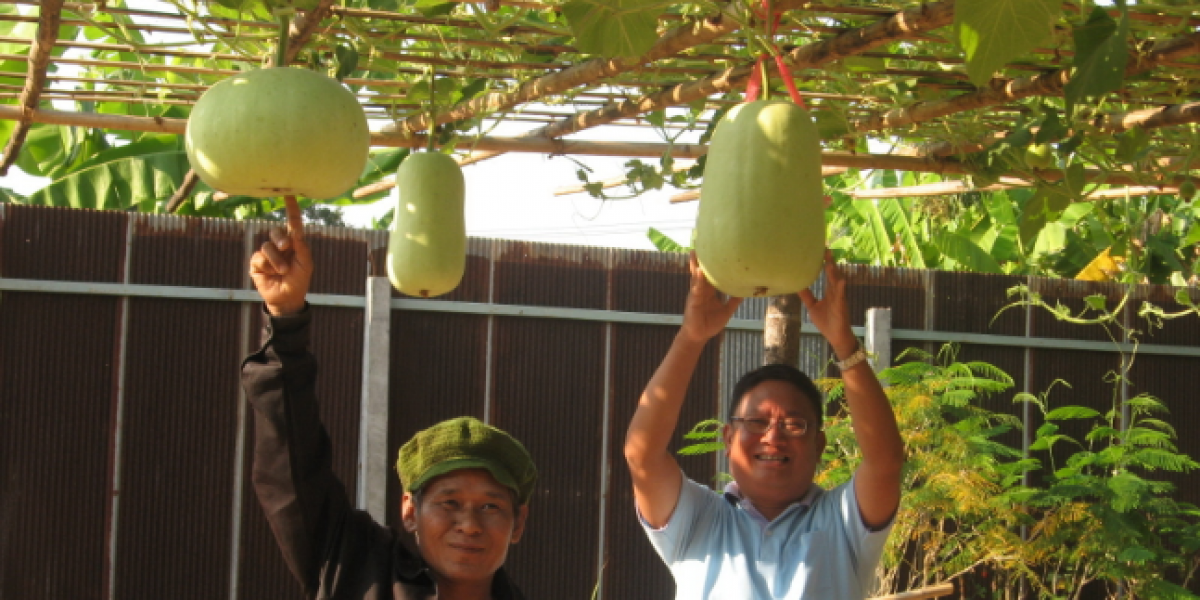Thailand: A Renewed Future and Life
01 December 2015|Fr. Bambang Sipayung

The landslide victory of the NLD (National League for Democracy) under the leadership of Aung San Su Kyi makes Zaw Min Naing very happy. He really hoped that Aung San Su Kyi would win so the country could move forward to a more democratic country. He knows the realities of living under the military regime in Myanmar and in fact had to flee the country because his life was under threat as he was involved in the democratic movement in Myanmar. He has been living in Thailand over the years and could not stay away from social activism so he joined the Overseas Irrawady Association to advocate, represent, and defend the rights of migrants in Thailand.
He presented OIA’s work in the area of protection for migrant workers in Mae Sot and integration to bridge the migrant and local communities. I asked him, “What does the meaning of Aung San Su Kyi’s victory for the country mean for the future of OIA?” He smiled and explained that it is a positive impact for OIA. Now he expects a new model of seeing the civil society movement, not as illegal organizations but as critical partners working together for the country and for the people. He sees the needs of the country to look at reconciling with people who are in exile and to continue advocating and protecting the values of humanity for all communities.
OIA has been actively involved advocating for the rights and protection of migrant communities in Mae Sot, Thailand. Together with JRS, OIA collaborated to organize and to promote socio-cultural events of migrant communities among Thai communities. One was the initiation of children to monkhood which is a well know cultural event for Myanmar Buddhist communities that is also shared by the Thai Buddhist communities. While it introduces the uniqueness of Myanmar culture, it also helps to provide an awareness of the presence and difference of migrant communities to local Thai communities. It gave a platform for better understanding of social cultural insight of migrant communities and to not only look at the economic side of working migrants.
Besides these activities, OIA and JRS also organized an awareness training of labor rights in Thailand, human trafficking and procedures to report labor issues to the local authorities in Thailand. While these trainings help to raise awareness of the migrant workers’ rights, it also helps them to learn how to organize and help their communities on labor issues. For Zaw Min Naing, the migrants will need their community to accompany them to go through specific cases and especially for advocacy support in preventing and protecting their rights.
The estimated number of Myanmar migrants in Thailand is around 2.5–3 million people who are spread out all over Thailand. Since 2009, these migrants have entered a national verification process (NV) involving the Thai/Myanmar government officials, in line with a 2003 MOU on Cooperation in Worker Employment. After they completed this process, the migrants will be regularized where they will be issued a temporary passport and a two-year Thai visa and work permit. However, there was a lack of transparency in terms of policies in the implementation according to Migrant Workers Rights Network (MRWN) hat put migrant workers in vulnerable positions.
The presence of community based organizations (CBO), such as OIA, that provide service and advocacy for the rights of Burmese migrant workers in Mae Sot is crucial for ASEAN Economic Communities. For Zaw Min Naing the incoming government led by Aung San Su Kyi will give hope for transparent policies that protect migrant workers and their rights.


